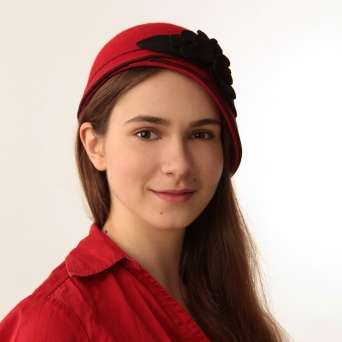How do you condense a 2,000-page novel with over 400 characters into an hour and a half? If it’s an operatic adaptation you’re attempting, tradition provides an answer: you pare it down to a love triangle. Bright Sheng’s and David Henry Hwang’s Dream of the Red Chamber is centered on Bao Yu and Dai Yu. Originally a stone and a flower, they took human form so Dai Yu (the flower) could pay back Bao Yu (the stone, who had long sheltered and watered her) with human love and tears. As humans, they are born into the powerful Jia clan, whose political ambitions interfere with their destined union.
The result is easily followed: a simple plot, sung in English. In striving for accessibility, the libretto mars the opera. The story plods along at a dull pace, with far too much exposition and repetition in the first half. Multiple framing devices, include a monk-narrator and a flash-forward chorus of a ragged mob trampling the ruins of the Jia family compound, keep us at a distance from the action. Character development is nil. It’s only in the second act that the words get out of the way and the emotion of the tragedy flows through the music. Bright Sheng’s music is glorious and extraordinarily varied. Thunderous gongs contrast with the solo qin (an ancient Chinese instrument, played here by Zhao Yi); cacophonous dins alternate with flights of melodic lyricism. Musical phrases transform as they are repeated. Fast, rhythmic sections underscore arguments. Under George Manahan’s baton, the San Francisco Opera Orchestra deftly handled Sheng’s wide stylistic range. In particular, the percussionists took full advantage of their chance to shine (or crash or ding).
There’s just one problem: in opera, the music must cooperate with the words. This score responds to the story, but not to the actual text. Awkward pauses sit in the middle of sentences, and emphases fall in the wrong places. Difficult vocal writing is made nearly impossible by a text setting with no regard for sing-ability.
The cast of principals (all Asian or Asian-American, and mostly new to the War Memorial Opera House stage) tackled the score’s challenges valiantly. As the matriarchs of the Jia family, Lady Wang (Hyona Kim) and her mother-in-law Granny Jia (Qiulin Zhang) battled for control of Bao Yu’s future. Kim’s steely mezzo-soprano contrasted excitingly with Zhang’s darker contralto; their different timbres paralleled their different values. Lady Wang’s daughter, the ill-fated Princess Jia, was sung with commanding presence and clear high notes by soprano Karen Chia-Ling Ho.
Dai Yu has some of the operas most difficult moments – multiple series of held, stratospheric notes that are totally exposed. Soprano Pureum Jo had the shimmering tone and dynamic control for the part, even if she occasionally showed signs of strain. Irene Roberts played her rival Bao Chai with an ever-present smile and a rich, ringing sound. The wobbly-toned Yanyu Gao was less successful as her mother, Aunt Xue. The star of the love triangle and the night was tenor Yijie Shi as the poetic and disobedient heir to the Jia clan, Bao Yu. His second-act aria “I never dared to tell you” was a triumph, with effortless clarion tone and interspersed moments of soft, melting sweetness.
The San Francisco Opera Chorus, directed by Ian Robertson, sang strongly on tricky harmonies and created a finely textured overall sound. Much of their singing was from offstage; when they appeared onstage as a mob, their milling about seemed aimless. As the (non-singing) monk, Randall Nakano delivered his largely unnecessary narration with gravity, volume, and precise diction.
With such a shallow text, it fell to the staging to provide depth and symbolism. Production designer Tim Yip (of Crouching Tiger, Hidden Dragon fame) did not disappoint. The costumes are not only sumptuously lavish, but meaningful. Granny Jia’s solidity is conveyed by brown; Bao Yu is passionate in red; the frail Dai Yu sports pale green silk in wispy layers that look ready to blow away. Translucent hanging pieces create a backdrop somewhere between reality and the “dream” of the title. While elaborate set pieces abound, sometimes the simplest conceits are the most effective, like the scrim separating Bao Yu and Dai Yu as they each cross the dark stage in despair and the bright blue fabric that creates the lake in which Dai Yu drowns herself.
There’s much to admire in Dream of the Red Chamber. Bright Sheng’s compositional genius is obvious, Tim Yip’s designs are breathtakingly beautiful, and the cast is full of new discoveries for San Francisco operagoers. But without a strong text holding the work together and cooperating with the music, it doesn’t succeed as an opera.


